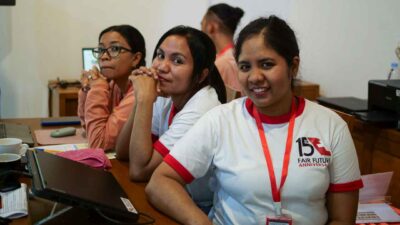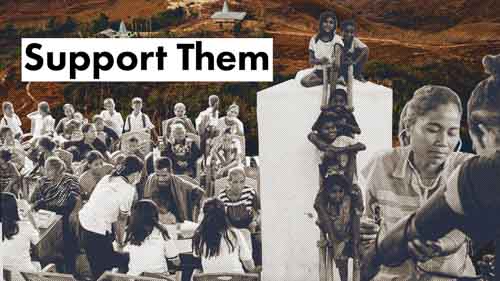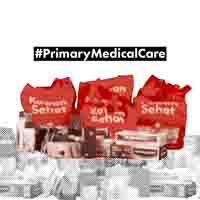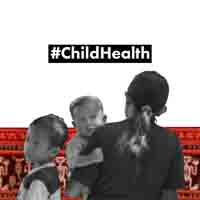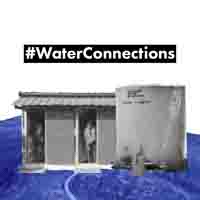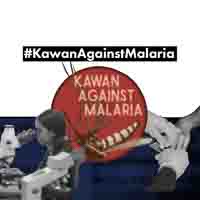Building health worker capacity through Fair Future’s life-saving training brings essential healthcare to ultra-rural communities.
Essential training improves skills to save lives and improve healthcare in remote areas.
Kawan Sehat Health Worker Training: Transforming Communities and Saving Lives
Their training allows them to treat illnesses and injuries before they become serious, but their skills go further. They are also equipped to counsel families, children, and vulnerable people living in precarious conditions without access to clean water or electricity. This training saves lives and gives these communities the tools to adopt a healthier lifestyle and manage medical emergencies.
Preserving Life, Preventing Disasters
Before this program was implemented, even minor injuries, such as a cut on the foot, could be life-threatening. The lack of medical care, including disinfection and dressing, often led to severe and sometimes fatal infections. Today, thanks to the expertise of health workers, these injuries are treated quickly, preventing infection. For more complex diseases such as malaria, dengue fever, polio, tuberculosis or dysentery, recognising symptoms early and assessing the severity of the disease allows for rapid intervention. If needed, health workers can arrange for patients to be transported to the nearest medical facility, which is often a considerable distance away.
Advanced training with various specialists
A recent three-day session and nearly 30 hours of theory and practice covered 14 public health medical topics from our training manual (see here). In addition, more than ten modules were introduced by external mentors, including doctors, nutritionists, dentists, paediatricians, logisticians, water specialists and a communication specialist. These experts helped workers improve their skills in managing “complex” medical cases (See the photos gallery here).
“This training is not just about teaching medical skills; it’s about giving communities hope and a chance at life. These health agents are the frontline in saving lives.”
– Alex Wettstein, CEO and Founder of Fair Future
Some modules covered essential topics such as effective communication with vulnerable patients, pediatric care, cardiopulmonary resuscitation (CPR) and management of infectious diseases such as dysentery, malaria and polio. Mastering these skills is crucial in environments where these diseases can be fatal if not treated promptly.
Immediate and quantifiable impact
Since the Primary Medical Care program began two and a half years ago, these health workers have been active in 20/22 sub-districts, treating thousands of people and likely saving hundreds of lives, although the precise number is difficult to determine. In addition to providing medical care, they have improved living conditions in these communities. The evidence of their impact is undeniable: since their training ended last week, several dozen new cases have already been recorded in the Kawan Sehat application. This application, developed by the Foundation, tracks and records every patient and the treatment and medication administered (See the photos gallery here).
The WhatsApp group, comprised of medical teams and health workers, remains constantly active. The real-time exchange of data on patient health allows for a rapid and coordinated response to the needs of these isolated populations.
Looking Ahead: Program Replication
This training will be repeated in March 2025 as part of the 12-month program for # the third year of #PrimaryMedicalCare. A detailed schedule of upcoming activities will be shared soon, but we can already tell that the momentum continues to grow. These frontline workers are writing a story of life and health, providing isolated populations access to medical care they could never have dreamed of.
Today, October the 1st, 2024 – Alex Wettstein
A programme worthy of recognition and support
We express our deepest gratitude to all those who contributed to the success of this training, from our dedicated health workers and medical teams to all supporters. The Primary Medical Care programme is a unique and pioneering solution providing essential healthcare in ultra-rural areas without infrastructure.
This programme saves lives every day by preventing minor injuries and illnesses from becoming fatal, giving communities a chance for a healthier future. However, we cannot do it alone. We call on decision-makers worldwide to recognise this initiative’s extraordinary nature. It is the most effective way to ensure access to healthcare in some of the most remote areas of the world, and it needs your support more than ever.



